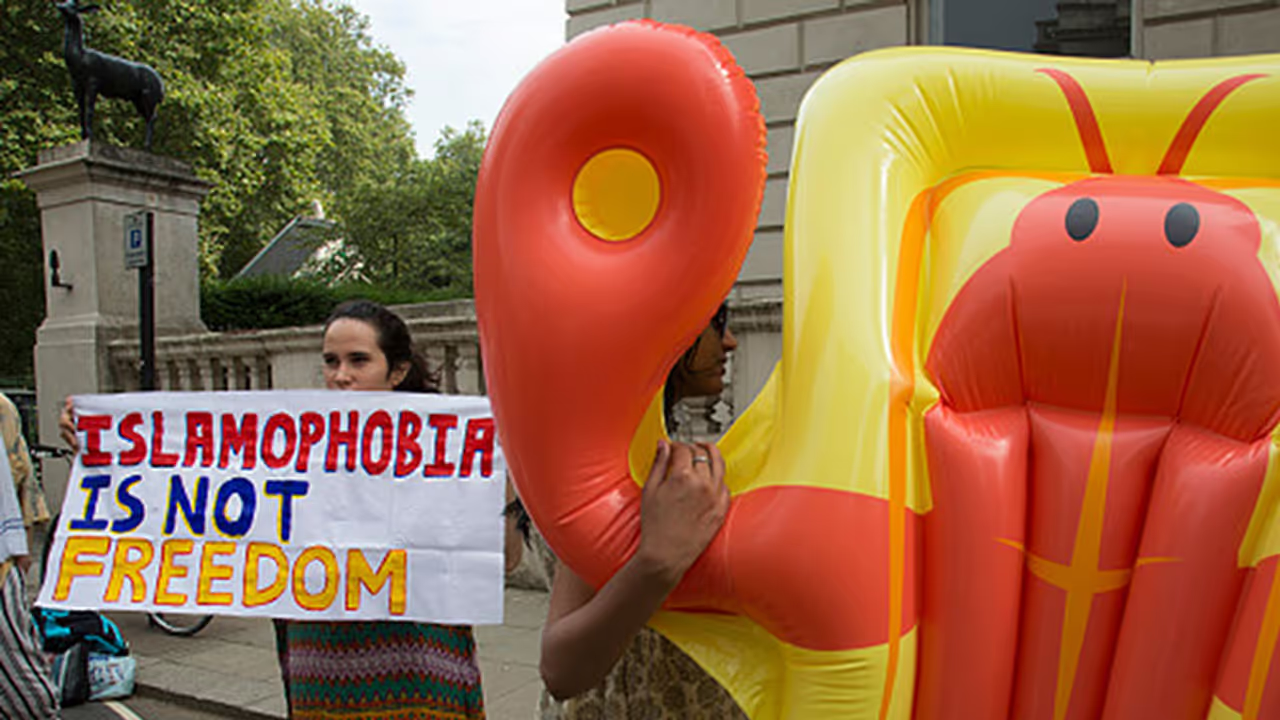'Burkini' must be the most searched and used word across the world over the last one week; an otherwise obscure piece of swimsuit with a tunic kind of cover that some Muslim women prefer when swimming publicly.

Incidentally France helped make it famous by banning the garment and going as far as ticketing women seen in them and even making a ridiculous spectacle of forcing a Muslim woman get rid of her aqua tunic on a beach, a video of which went viral.
Another woman was fined for not wearing "an outfit respecting good morals and secularism," while beachgoers shouted, "Go Home".
As a saviour of French secularism or laïcité, Council of State, the country's supreme administrative authority, ruled that the ban "seriously, and clearly illegally, breached the fundamental freedoms to come and go, the freedom of beliefs and individual freedom."
So for now, it has been suspended - except of course they can't ban xenophobia.
The ban was imposed on grounds that this piece of clothing contravened French laws on secularism. The French had taken theirmuch-vauntedlaïcité as far as the right wing Indian nationalists take the cow.
If the gaurakshaks lynch and flog beefeaters and cow sellers, the French town of Sargé-lès-le-Mans started a "pork or nothing" at schools where Jewish and Muslim kids either eat pork or go hungry.
But whom is France actually taking on by banning the burkini and flying off the tangent as it were after a string of Islamic State attacks?
It almost seems like a vicious conspiracy to see France declare a war on its Muslim citizens. This feels like just what the Islamic State and its tentacles would want.
The political machinations of the ancient world have eerie parallels with those in more modern times. In the early years after the French revolution, France was reeling from civil war, war with several neighbouring countries and shortages of basic foodstuffs.
Continuing unrest among peasants and the urban poor—fuelled as much by skyrocketing food prices and poverty as ideological concerns—threatened civil society. Rioting periodically erupted in Paris.
To bring about stable government, the National Convention created the Committee of Public Safety in April 1793, which was granted new and expansive powers. Terror was formally instituted as a policy by a series of proclamations in September 1793, one of which read 'Terror is the order of the day.' The modern connotation of 'terrorism' finds its origin here.
Led by the charismatic Maximilien Robespierre—who declared that 'terror is nothing else than justice: prompt, severe (and) inflexible'—the subsequent Reign of Terror claimed tens of thousands of lives.
In less than eleven months, 16,594 citizens were executed by the guillotine, and some 25,000 were killed in summary executions or state sanctioned killings that were little more than acts of organized savagery and mass murder. In the later stages of the Reign of Terror, the legal requirement for a proper trial with witnesses was revoked, and citizens were sent to the guillotine after a summary examination by a tribunal. The Reign of Terror only ended with the execution of Robespierre himself.
The de-Christianisation of France was also a bloody suppression by the state. By 1794 that same revolution shut down 40,000 churches and priests and nuns were guillotined. It was nothing less than genocide.
Just like France had picked its fight with the Catholic Church, is it now redefining its secularist identity by picking on Islam?
In 2004 headscarf were banned from schools in France and by 2010, the niqab was banned from any public display. Some 4.7 million Muslims now live in France and that is 7% of the population.
The manner in which the state shamed women who wanted to participate in the French society is bound to have consequences. If the French don't see it coming then they may have to rethink their idea of freedom.
Kishalay Bhattacharjee is a senior journalist and author. His most recent book is Blood on my Hands: Confessions of Staged Encounters (Harper Collins 2015). The views expressed here are his own.
